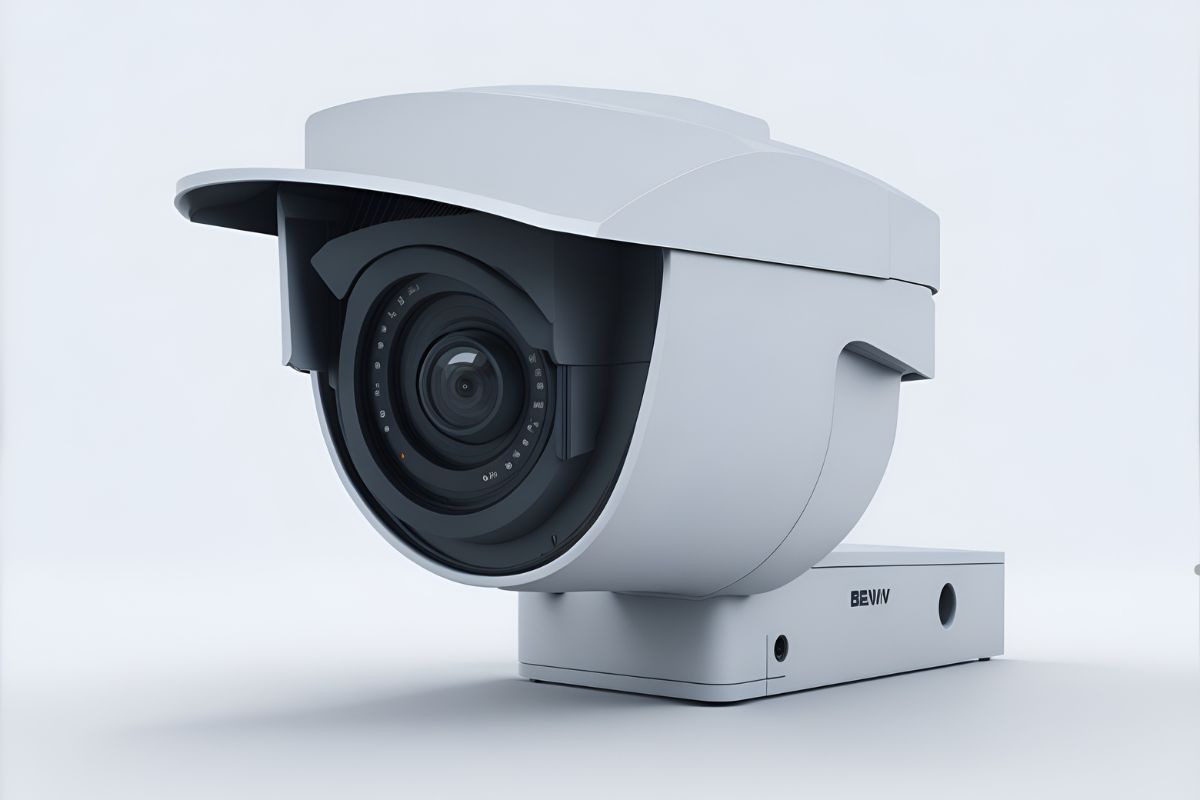
Ensuring your children’s safety at home is a top priority for any parent. This guide covers key home security measures, from securing entry points to leveraging smart technology and teaching your kids about safety protocols, ultimately providing peace of mind and a secure home environment. [Call us] today for a free consultation to assess your family’s specific needs and implement a tailored security solution.
Why Home Security Matters for Families

In today’s world, prioritizing home security is more important than ever, especially when you have children. A secure home not only protects your family from potential intruders but also minimizes the risk of accidents and injuries. Knowing your home is safe provides invaluable peace of mind, allowing you to focus on what truly matters: raising happy, healthy children. Creating a safe home environment is about more than just locks and alarms; it’s about establishing a culture of safety and awareness within your family.
A well-secured home acts as a sanctuary, shielding your loved ones from external threats and internal hazards. From installing reliable security systems to educating your children about potential dangers, every measure you take contributes to a safer, more secure environment. This proactive approach not only deters criminals but also fosters a sense of security and well-being among family members. Learn more about reliable security options with our alarm systems.
Common Home Security Threats for Children
Understanding potential threats is the first step in protecting your children. This includes being aware of both external risks, like stranger danger, and internal hazards, such as unsecured chemicals or sharp objects. Teaching your children about these threats in an age-appropriate manner is crucial for their safety.
Stranger Danger: Educating Your Kids
Teaching children about stranger danger is vital. Emphasize that they should never open the door to someone they don’t know, nor should they ever go anywhere with a stranger, no matter what they say. Role-playing scenarios can be a helpful way to reinforce these lessons.
Accidental Injuries: Securing Hazards
Many home injuries are preventable. Childproofing your home involves securing cabinets containing cleaning supplies, installing safety gates on stairs, and covering electrical outlets. Regularly inspect your home for potential hazards and address them promptly. Securing hazards reduces the risk of accidental injuries.
Call us today to discuss your home security needs and receive a personalized assessment.
Securing Your Home: A Comprehensive Guide
Now that you understand the importance of home security and the potential risks, let’s delve into the specific measures you can take to secure your home effectively. This section will cover everything from reinforcing entry points to enhancing outdoor security.
Reinforcing Entry Points
Your doors are the first line of defense against intruders. Ensure that all exterior doors are solid core and equipped with high-quality deadbolt locks. Consider adding a reinforcing strike plate for added security. Remember to always lock your doors, even when you are home. Regularly check the condition of your door frames and repair any damage promptly.
Window Safety
Windows are another potential entry point for intruders. Ensure that all windows are equipped with secure locks. Consider installing window security film to make them more difficult to break. For ground-floor windows, consider adding window bars or grilles.
Outdoor Security
A well-lit and well-maintained yard can deter potential intruders. Install motion-sensor lights to illuminate dark areas. Trim bushes and trees that could provide cover for burglars. Consider installing a fence to create a physical barrier around your property. A visible security system sign can also act as a deterrent.
Leveraging Technology for Enhanced Safety
In today’s digital age, technology offers a wide range of solutions for enhancing home security. Smart home devices can provide an extra layer of protection and convenience.
Smart Locks and Doorbell Cameras
Smart locks allow you to remotely lock and unlock your doors, providing added convenience and control. Doorbell cameras enable you to see who is at your door, even when you’re not home. Many doorbell cameras also offer two-way communication, allowing you to speak to visitors remotely. Smart locks and doorbell cameras can be valuable additions to your home security system.
Security System Monitoring
A professionally monitored security system provides 24/7 protection for your home. In the event of an alarm, the monitoring company will dispatch the appropriate authorities. Security system monitoring can provide peace of mind, knowing that your home is always protected.
Smart Home Automation
Smart home automation allows you to control various aspects of your home security system remotely. For example, you can set your lights to turn on and off automatically, creating the illusion that someone is home even when you’re away. You can also receive alerts on your smartphone if a door or window is opened.
Call us today for a free consultation and learn how smart home technology can enhance your family’s safety.
Empowering Children with Safety Knowledge

Teaching your children about home security is just as important as implementing physical security measures. Empowering children with safety knowledge can help them make smart decisions and stay safe in various situations.
Basic Security Rules
Teach your children basic security rules, such as always locking the door when they come home, never opening the door to strangers, and never giving out personal information over the phone or online. Reinforce these rules regularly to ensure that they are ingrained in their minds. It is important to educate kids about Basic Security Rules.
Emergency Procedures
Make sure your children know what to do in case of an emergency, such as a fire or a break-in. Teach them how to call 911 and what information to provide to the operator. Practice emergency drills regularly to ensure that they are prepared. For additional safety measures, explore our fire control services to protect your home and family.
Knowing When to Call for Help
Teach your children when it is appropriate to call for help. They should know that they can always call for help if they feel unsafe or threatened. Emphasize that it is never wrong to ask for help when they need it.
Preparing for the Unexpected: A Step-by-Step Guide
Creating a family emergency plan is an essential part of preparing for the unexpected. A well-thought-out plan can help your family stay safe in a variety of emergencies.
Identifying Escape Routes
Identify multiple escape routes from your home in case of a fire or other emergency. Ensure that all family members are familiar with these routes. Practice evacuating your home using these routes regularly. Knowing the multiple escape routes helps in an emergency.
Designating a Meeting Point
Designate a meeting point outside of your home where your family can gather after an emergency. This will help ensure that everyone is accounted for. Choose a meeting point that is easily accessible and familiar to all family members.
Practicing Drills
Conduct regular fire and emergency drills to ensure that your family is prepared. These drills will help reinforce your emergency plan and ensure that everyone knows what to do in the event of an actual emergency. Practicing Drills is helpful for everyone in emergency situations.
Frequently Asked Questions About Home Security & Kids
How young is too young to start teaching my child about home security?
It’s never too early to start teaching your child about basic safety concepts. Even toddlers can understand simple rules like “Don’t open the door to strangers.” As they get older, you can gradually introduce more complex concepts.
What should I do if my child is home alone and someone knocks on the door?
Instruct your child never to open the door to anyone they don’t know. They should look through a peephole or window to see who it is. If they don’t recognize the person, they should ignore them and call you or a trusted adult.
Are security systems worth the investment for families?
For many families, the peace of mind that a security system provides is well worth the investment. Security systems can deter burglars, alert you to emergencies, and provide 24/7 monitoring.
Consider an image here: A graphic showing a family feeling safe and secure inside their home, protected by a home security system.
Prioritizing Your Family’s Safety
Protecting your family is the most important thing. By taking proactive steps to secure your home and educate your children about safety, you can create a safer, more secure environment for everyone. Contact us today to take the first step towards a more secure future for your family. Don’t wait, ensure your family is protected.
